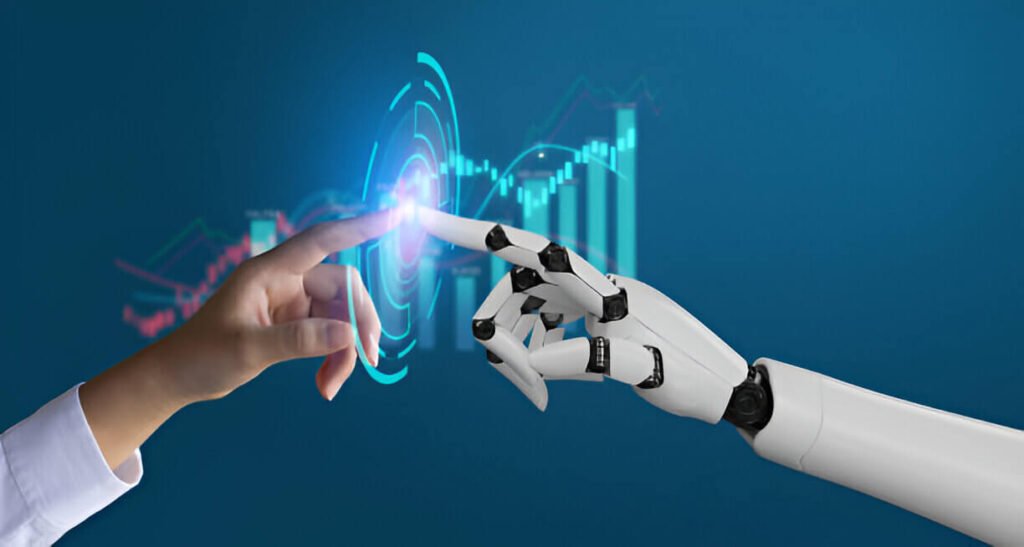Customer Relationship Management (CRM) has become an integral part of business strategy, enabling companies to manage interactions with current and potential customers effectively. As technology advances, so does the landscape of CRM, adapting to new business needs and customer expectations. In this comprehensive guide, we will explore how CRM is evolving and what businesses can expect in the future.
The primary objective of CRM systems has always been to enhance the relationship between businesses and their customers. Initially, CRM systems were simple databases for managing contact information.
However, over the years, they have evolved into sophisticated platforms that provide valuable insights and automate numerous business processes. This evolution is driven by technological advancements, changing customer behaviors, and the increasing importance of data in decision-making.
CRM is Evolving: The Process
From Rolodexes to Digital Databases
The earliest forms of CRM were manual systems like rolodexes and spreadsheets. These systems were limited in their functionality, providing only basic contact management. The introduction of digital databases in the 1980s marked the beginning of modern CRM systems. These databases allowed for more organized storage of customer information and facilitated better data retrieval.
The Rise of Software Solutions
In the 1990s, software companies began developing CRM software that offered more advanced features. These early CRM systems included functionalities like sales force automation (SFA), customer service, and marketing automation. This era saw the emergence of major CRM players like Siebel Systems, which set the foundation for today’s CRM solutions.
Cloud Computing and SaaS
The advent of cloud computing in the mid-2000s revolutionized CRM. Cloud-based CRM solutions offered businesses greater flexibility, scalability, and cost-efficiency. Companies like Salesforce pioneered the Software as a Service (SaaS) model, enabling businesses to access CRM systems over the internet without the need for extensive IT infrastructure.
Integration and Customization
Modern CRM systems are highly customizable and integrative. They can seamlessly integrate with other business applications like ERP, marketing automation, and social media platforms. This integration allows businesses to create a unified view of customer data, improving cross-functional collaboration and data-driven decision-making.
Key Trends Shaping the Future of CRM

Artificial Intelligence and Machine Learning
AI and machine learning are transforming CRM by providing predictive analytics and intelligent automation. AI-powered CRM systems can analyze vast amounts of data to predict customer behavior, personalize marketing campaigns, and automate routine tasks. For example, chatbots powered by AI can handle customer inquiries 24/7, improving response times and customer satisfaction.
Customer Data Platforms (CDPs)
CDPs are emerging as essential components of CRM systems. They collect and unify customer data from multiple sources, creating a comprehensive customer profile. This unified data helps businesses deliver more personalized and relevant experiences. CDPs also enhance data privacy and compliance by providing a single source of truth for customer data management.
Mobile CRM
With the increasing reliance on mobile devices, CRM systems are becoming more mobile-friendly. Mobile CRM applications enable sales and customer service teams to access customer information on the go, improving productivity and responsiveness. Features like mobile data entry, real-time notifications, and location-based services are enhancing the functionality of mobile CRM.
Social CRM
Social media has become a critical channel for customer engagement. Social CRM integrates social media data into CRM systems, allowing businesses to monitor social conversations, engage with customers, and manage social media campaigns. This integration helps businesses gain deeper insights into customer sentiments and trends.
Internet of Things (IoT)
IoT technology is expanding the scope of CRM by connecting various devices and sensors to the internet. IoT-enabled CRM systems can collect data from connected devices, providing real-time insights into customer behavior and product usage. This data can be used to improve customer service, predict maintenance needs, and develop new products.
Enhanced User Experience (UX)
Modern CRM systems are focusing on delivering a superior user experience. Intuitive interfaces, easy navigation, and advanced visualization tools are making CRM systems more user-friendly. Enhanced UX helps businesses increase user adoption rates and ensures that employees can efficiently utilize CRM features.
The Impact of Evolving CRM on Businesses

-
Improved Customer Insights
The evolution of CRM is providing businesses with deeper customer insights. Advanced analytics and AI-driven tools help businesses understand customer preferences, behaviors, and needs. This understanding enables businesses to deliver personalized experiences, improving customer satisfaction and loyalty.
-
Increased Efficiency and Productivity
Automation and AI are streamlining various business processes, reducing the time and effort required for routine tasks. Sales teams can prioritize leads based on AI-generated scores, customer service teams can resolve issues faster with automated responses, and marketing teams can execute targeted campaigns with greater precision.
-
Enhanced Customer Engagement
Social CRM and mobile CRM are enhancing customer engagement by providing multiple touchpoints for interaction. Businesses can engage with customers on their preferred channels, whether it’s social media, mobile apps, or traditional email. This omnichannel approach ensures a consistent and cohesive customer experience.
-
Data-Driven Decision Making
Modern CRM systems provide real-time data and analytics, empowering businesses to make informed decisions. Dashboards and reports offer actionable insights, helping businesses identify trends, measure performance, and optimize strategies. Data-driven decision-making leads to better outcomes and competitive advantage.
-
Scalability and Flexibility
Cloud-based CRM solutions offer scalability and flexibility, allowing businesses to expand their CRM capabilities as they grow. Companies can add new users, integrate additional applications, and scale their operations without significant upfront investments. This flexibility makes CRM accessible to businesses of all sizes.
Future Directions for CRM

Hyper-Personalization
The future of CRM lies in hyper-personalization, where businesses use AI and big data to deliver highly tailored experiences. Predictive analytics will enable businesses to anticipate customer needs and preferences, offering personalized recommendations and solutions.
Voice-Activated CRM
Voice recognition technology is making its way into CRM systems. Voice-activated CRM will allow users to interact with the system using voice commands, making data entry and retrieval more convenient. Virtual assistants like Siri and Alexa could be integrated into CRM platforms to enhance user interaction.
Blockchain for Data Security
Blockchain technology has the potential to enhance data security in CRM systems. By providing a decentralized and tamper-proof ledger, blockchain can protect customer data from breaches and ensure transparency. This technology could also streamline processes like identity verification and contract management.
Augmented Reality (AR) and Virtual Reality (VR)
AR and VR technologies are opening new possibilities for CRM. Businesses can use AR/VR to create immersive customer experiences, such as virtual product demonstrations and interactive training sessions. These technologies can also enhance remote collaboration and support.
Sustainability and Ethical CRM
As businesses become more socially responsible, CRM systems will evolve to support sustainability and ethical practices. CRM platforms can help businesses track their environmental impact, manage ethical supply chains, and engage in corporate social responsibility (CSR) initiatives.
Conclusion
The evolution of CRM is a testament to the dynamic nature of technology and business. From basic contact management systems to advanced AI-driven platforms, CRM has come a long way. As we look to the future, businesses must stay abreast of the latest trends and innovations in CRM to remain competitive and meet the ever-changing demands of their customers.
By leveraging the latest CRM technologies, businesses can gain deeper customer insights, enhance engagement, and drive growth. The future of CRM promises even more exciting developments, from hyper-personalization to voice-activated systems, ensuring that businesses can continue to build strong, lasting relationships with their customers.






























